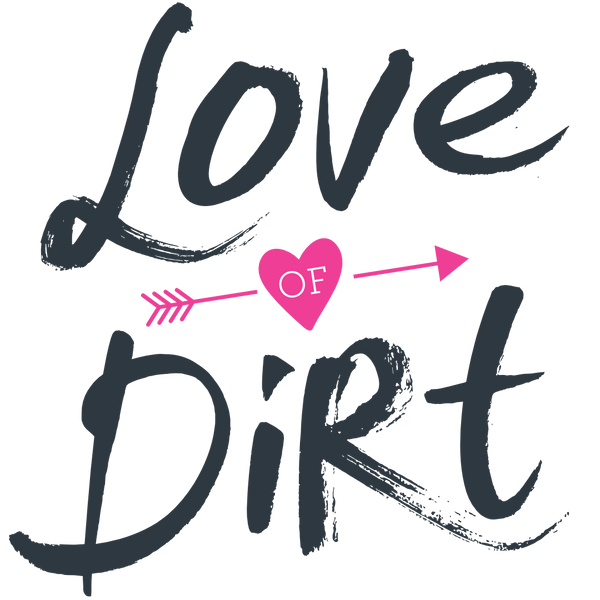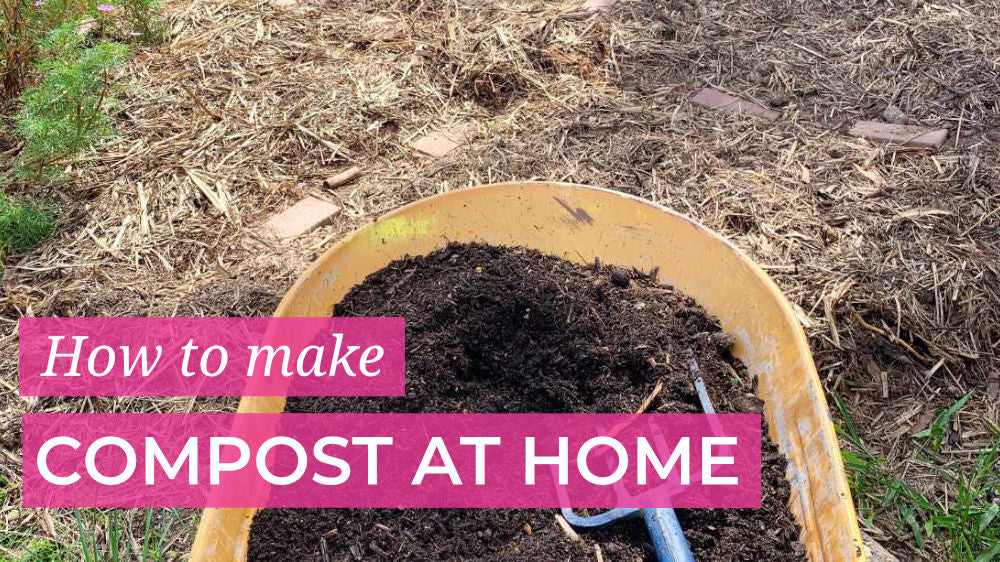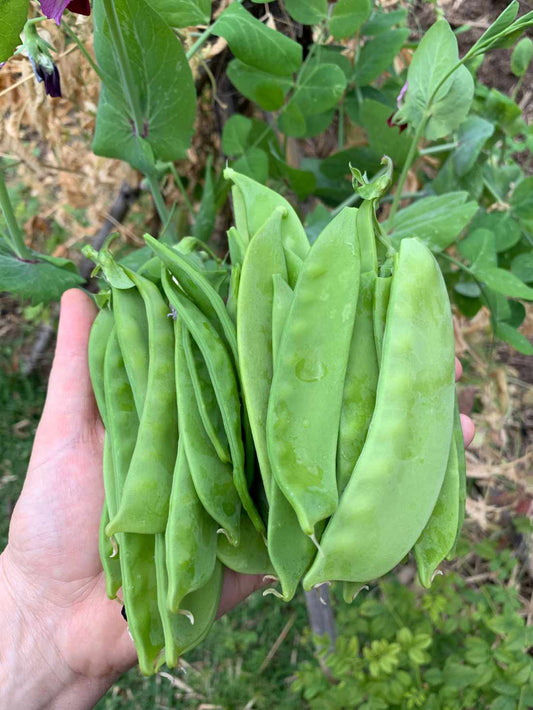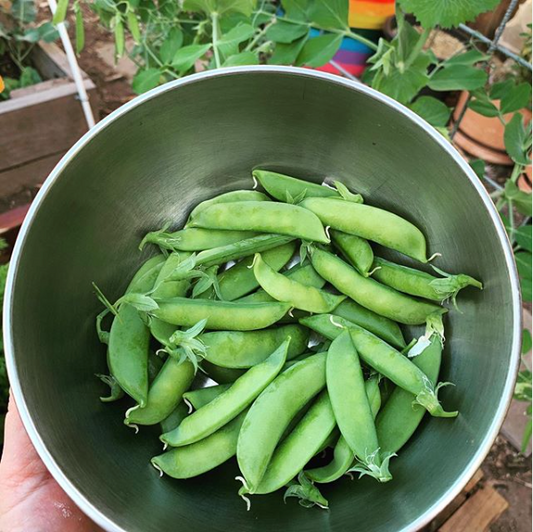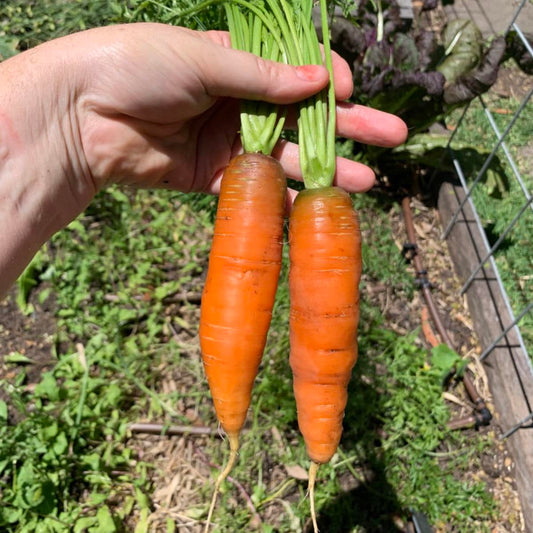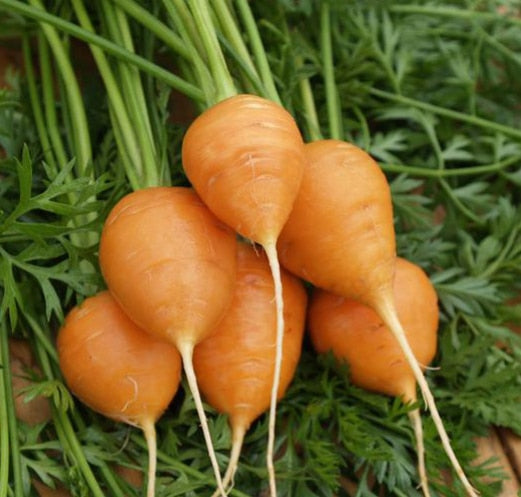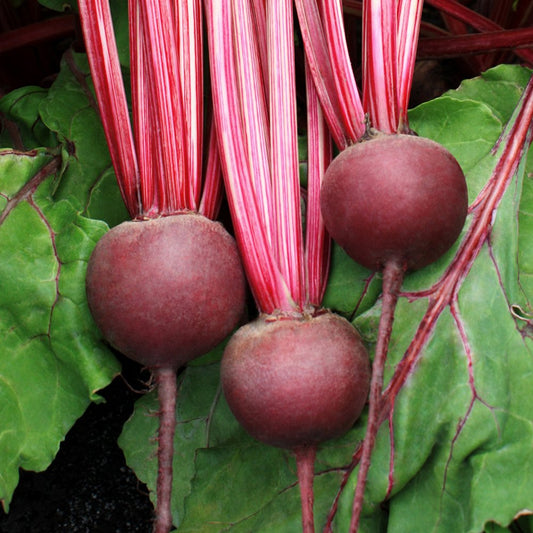Compost is one of the key ingredients to the success of growing food and there is nothing like home grown compost. If you grow your own food, knowing how to make your own compost is key.
You can buy compost and although it’s often handy to have if you need, it really is just not the same. You really have no idea what is going into store bought compost. I’ve actually seen some people on instagram find chunks of treated pallets in their ‘organic’ compost. Which goes to show the industry is not as regulated as it should be. Especially if you’re purchasing it to grow food!
Benefits of compost for your vegetable garden
Adding compost to your soil increases organic matter, which in turn increases water holding capacity. It also benefits all the good little microorganisms in your soil to help your plants get the nutrients they need. If you want to delve deep into soil health I definitely recommend checking out the work of Elaine Ingham and the Soil Food Web.
The other benefits of home composting is it reduces waste! Home composting stops unnecessary waste going to landfill. If you're growing most of the food you consume, any scraps you potentially produce is likely to go back in your compost bin. This is closing the loop and you're putting those nutrients back into your garden.
What goes into compost
We add all our garden and kitchen scraps with the addition of extra 'browns' in the form of dried leaves or mulch. Often our browns is just the chicken coop bedding after a clean out.
Key elements of good compost:
- Nitrogen (kitchen scraps, manure)
- Carbon (mulch, sawdust)
- Air
- Water
One of the most common issues people have with composting at home is not getting the balance right. You want a good mix of browns (carbon based elements) and greens (high nitrogen based elements). If this is off it will not make compost, just a gluggy stinky mess that takes forever to break down.
Browns/Carbon
- Straw
- Mulch
- dead leaves
- Sawdust
- Wood Chips
- cardboard/paper
Greens/Nitrogen
- Grass clippings
- Food scraps
- Garden scraps
- Manure
Air
If you don't get air into your compost will just sit in a clump and take longer to break down, it's good to give it a good mix to keep things going. I find if I don't give it a turn things slow down immensely. I did purchase a special compost turner, but honestly I mostly use my fork, stick it in and give it a wiggle and that's enough.
Water
You want your compost to be like a wrung out sponge, not sopping wet. If you over do the water just add more carbon dried elements.
I go by my nose and if ever things get a bit stinky I know my balance is off and I need to add more carbon. If the composting break down process starts to slow down, it means the nitrogen content is too low or I need to add more moisture.
What should you avoid putting into your compost bin
Composting worms aside, technically anything that was once alive can be composted. However there are some things you may want to avoid particularly if you’re wanting to use the compost on edibles - some things can put the balance off, add unwanted pathogens or attract some unwanted visitors.
- Dairy Products (attracts unwanted visitors)
- Fish and meat scraps (attracts unwanted visitors)
- Cat and Dog Poo (If you’re using the compost on edibles due to pathogens that are harmful to humans)
- Oils (suffocates worms)
- Diseased or bug infested plants (prevent the spread)
We always compost onions and citrus with no issues.
How you can compost at home
There are so many ways that you can process your waste into veggie garden loving goodness but here are a couple of methods we use here:
- Composting worms
- Cold Compost System
- Hot Composting
Composting worms
Because I am kinda lazy (well time poor, I've got 2 preschoolers!), personally my favourite is vermicomposting. Composting worms are completely different from your average garden worms and the output from a worm farm is what I call compost gold. In my opinion it’s higher value than other compost.
The downside is unless you have a lot of farms (and worms) they generally can’t handle all the waste of a regular household. Plus there are things they don't like, so they go hand in hand with other composting systems.
Worms produce vermicast which is the ultimate compost and a little goes a long way. We have a few worm farms which I’ll dive into in a later post, but if you have issues with keeping worms alive I do have an ebook available with all my tips and tricks for getting the most out of your composting worms here.
Cold Compost System
Now these are your typical systems you will find in a regular garden - either a pile or a bin that you just chuck your scraps into with equal parts of carbon, give it a mix every now and then and over time (anywhere between 3-12 months depending on the balance of your system). We add mostly what we can’t give them worms. We’ve used tumblers in the past but now we use simple bins you can read about that here.
Hot Composting System
Hot composting is a great way to get compost fast. It is a tricky balance (and honestly one I am yet to fully master) as you need to have ALL your materials ready to go - over a cubic metre of it. Many people have many different methods but with hot composting we have found 1 part nitrogen to 2 parts carbon is a good ratio.
The pile needs to reach a temperature of between 50-60 degrees celsius - not from ambient temperature but from the microbial activity. This requires a fair bit of checking and turning. If you get your mix right you should have the most amazing nutrient rich weed free soil additive for your garden in under a month.
You know it’s ready when the worms have arrived and it no longer resembles what it once was.
Listen to this via the podcast
What kind of composting do you do at home? Leave a comment below.
If you’re looking for more step by step composting help we have a load of resources inside the dirt lovers membership.
